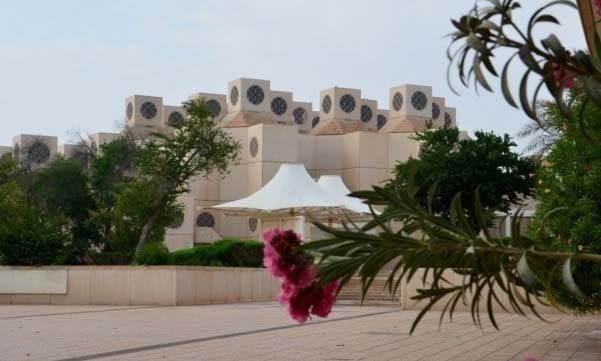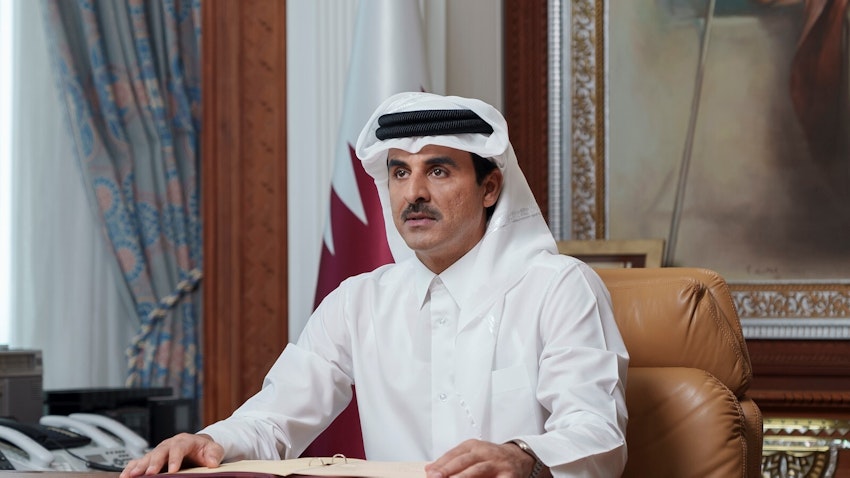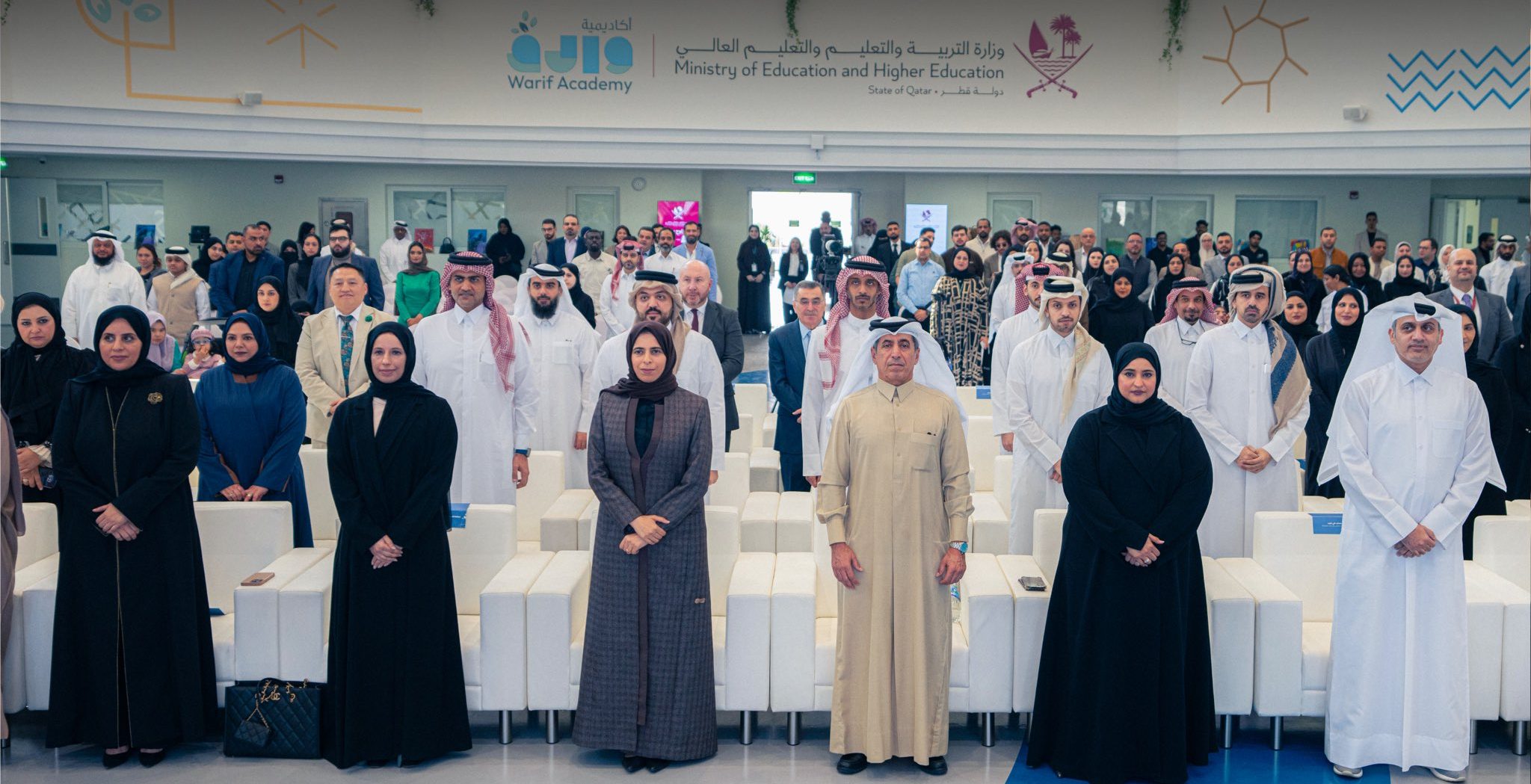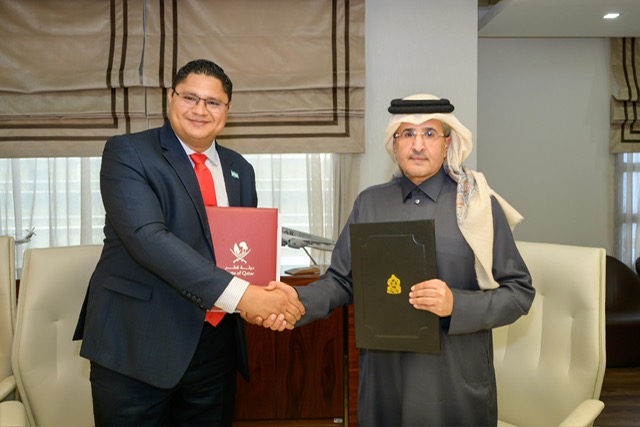
Faculty members and staff at Qatar University must now use Arabic during meetings and in work-related emails and letters, the institution’s president has announced.
In a short, bilingual statement on Wednesday to all staff members, Dr. Hassan Al Derham said that the decision would be effective immediately.
He explained:
“As the Arabic language is the official language of the State of Qatar, please note that all meetings, minutes of meetings and correspondence (paper and electronic) must be in Arabic.
Colleges/Departments that teach in English may be exempted from this directive, other than that, the official discourse language must be in Arabic at QU. Please note that the University will provide translation to those who do not understand Arabic.”
The move will likely mean a significant change for many staff who are used to communicating in at least some English.
Exemptions
However, it only applies to colleges or departments that currently teach their programs in Arabic.
Others whose main language of instruction is English, including the colleges of engineering, pharmacy and medicine, will not be affected, a QU spokesperson confirmed to Doha News.
Science programs at the university’s College of Arts and Sciences are also conducted in English.
In a tweet about the decision last week, Al Derham said:
اعتزازا بهويتنا وتماشيا مع توجيهات الدولة أكدنا اليوم على ضرورة اعتماد اللغة العربية في كل الاجتماعات والمحاضر والمراسلات في #جامعة_قطر
— د. حسن راشد الدرهم (@QU_President) November 2, 2016
Translation: To show pride in our identity and in adherence with the State’s instructions, we have emphasized today the necessity of making Arabic the official language in all meetings, lectures and correspondences at Qatar University.
The university did not say how it will enforce this rule, or what penalty would be imposed, if any, on someone who doesn’t follow it.
‘Commendable’
The decision was resoundingly supported by commenters on Twitter, who described it as “commendable” and “laudable.”
خطوة تشكرون عليها، ونتمنى أن يشمل تسجيل المواد وغيره من الخدمات الالكترونية، بحيث تصبح اللغة العربية هي الأصل لا الفرع.@QU_President
— علي الأنصاري (@bo_khalid_qa) November 2, 2016
Translation: This is a commendable step. We look forward to having this decision include course registration and all other electronic services so that the Arabic language becomes the main option and not an alternative to English.
@QU_President قرار موفق وبإنتظار تطبيق هذا القرار في كل المؤسسات والشركات في قطر
— أم سعود (@mahamka90) November 3, 2016
Translation: A laudable decision and we hope to see it implemented at all institutions and companies in Qatar.
Some said it was overdue, given that Qatar’s constitution designates Arabic as the language of the state.
قرار انتظرناه منذ زمن ..ولله الحمد
و أعانكم الرحمن على إكمال المسيرة بتعزيز الهوية و الدين في جميع مجالات الجامعة— أم الفضل الكعبي (@bntaljazera) November 2, 2016
Translation: We’ve been awaiting this decision for ages. Thankfully, it’s finally a reality. We pray to God to come to your aid (President of QU) in order to enforce our identity and religion and have them reflected in all aspects at university.
Meanwhile, others called for the university to go further by mandating its graduate programs be taught in Arabic, as opposed to English.
@QU_President الاهم اللغة العربية في دراسة الماجستير والدكتوراة كي يستفيد خريج الجامعة والمواطن. ولإثراء المكتبة بالمراجع العربية والدراسات،
— سلوى المُلا (@salwaalmulla) November 3, 2016
Translation: What’s even more important is for Arabic to be the main language in studying for masters and doctorates so that students are equipped to help their compatriots in a meaningful way through their mother-tongue. Hopefully, there will also be an increase in the number of Arabic studies and resource texts at the university’s library.
@QU_President والمواد العلمية في كلية التربية ليش ماتدرس باللغة العربية ! اتمنى النظر في هذه الموضوع
— SBA (@SBA__92) November 2, 2016
Translation: What about the scientific courses at the faculty of education? Why can’t they be taught in Arabic? We hope that you would look into this too.
Draft law
QU did not comment further on the decision or officially explain why it has been introduced.
Nor has it said what, if anything, will happen to its English-speaking staff and faculty in the affected colleges.
However, earlier this year, Qatar’s Cabinet approved a draft law that would require all ministries, official organizations and public schools and universities to use Arabic in all their communications.

At the time, QNA reported that the move would affect all ministries, official institutions, municipalities and public educational institutions at all levels of education.
This likely includes all government-run kindergartens, schools and universities.
The draft legislation would require these organizations to use Arabic for instruction, documents, contracts, transactions, correspondence, labels, programs, publications, advertisements and “all that comes out of their systems,” the news agency said at the time.
Changing university
QU used to teach many of its arts and humanities subjects in English.
However, in early 2012, the then-Supreme Education Council ordered that classes in law, international affairs, media and business administration be taught in Arabic instead.
This latest decision also comes amid an ongoing push for Arabic to be more widely used in daily discourse in Qatar.

There are concerns that many younger people in the country do not have a strong enough grasp of Modern Standard Arabic (fus’ha).
Qatar Foundation chairperson Sheikha Moza bint Nasser has repeatedly raised this issue, as she equated a loss of language to the erosion of cultural identity.
Thoughts?







